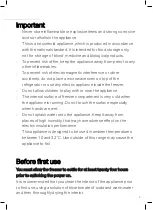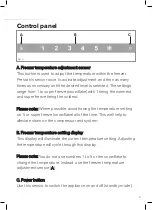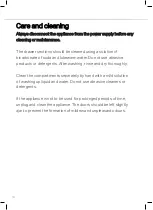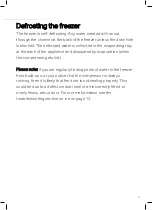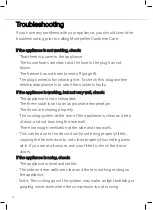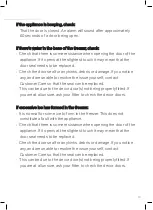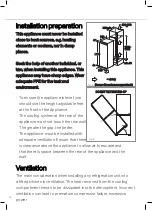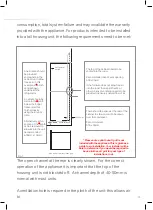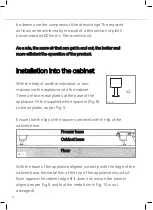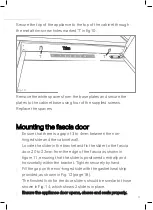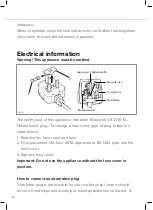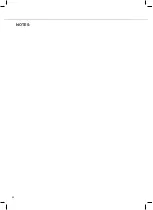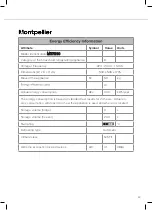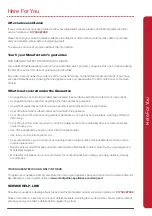
19
Reversing the appliance door
We recommend you seek the help of another individual to support the
doors whilst performing this operation. Always wear adequate PPE
(Personal Protective Equipment) for the task at hand. Prepare a
surface with a soft, clean towel or similar where you can place the
door during these steps.
1. Carefully prise off the cover cap for the top hinge and unscrew the
screws fixing the top hinge to the appliance, you should support
the door whilst doing this.
2. Carefully remove the door from the bottom hinge (by lifting) and
place it somewhere safe. Note that there may be spacers between
the door and the hinge; note how many and their position.
3. Swap the previous top hinge to the opposite side at the bottom.
4. Place the door onto the new bottom hinge. Support it.
5. Refit the “new” top hinge and fix securely to the appliance.
6. Fit the central cover caps and top hinge cover pieces in place to
complete the process.
7. Unscrew all four slider brackets from the door and swap them over
to the side furthest from the new hinge positions, before the decor
door is fitted.
Ensuring the door seals correctly:
It is normal for the seal to be compressed after the door has been
reversed. With the door closed, use a hair dryer to expand the seal
and fill the gap between the door and the body of the appliance.
Take care not to use the hair dryer too close to the appliance,
which could damage the seal. A distance of approximately 10cm
should be
Summary of Contents for MITF210
Page 23: ...22 NOTES...

